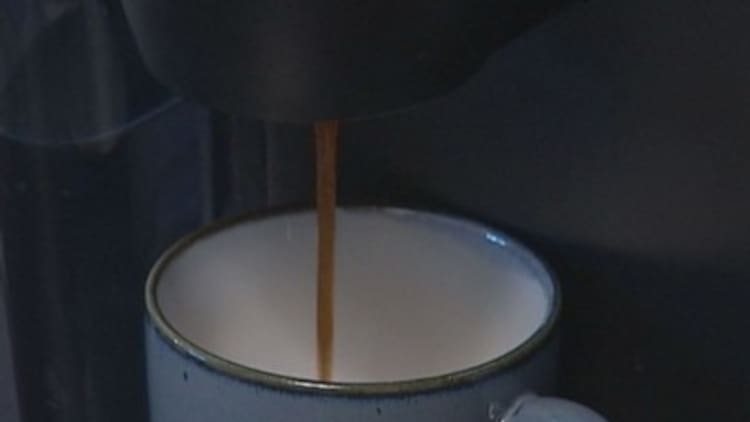
Feeling drowsy? Then maybe you need an "Asskicker," a coffee containing roughly 80 times the caffeine found in one espresso shot.
Currently being served at Viscous Coffee in Adelaide, Australia, a large serving of Asskicker promises to keep those brave enough to drink it awake for between 12 to 18 hours. The brew is so strong that its creator, Viscous Coffee owner Steve Benington, has sourced a health warning for the drink from a local GP.
The potent drink comprises of four espresso shots, eight 48-hour brewed cold drip ice cubes, and 120 ml of 10-day brewed cold drip. According to Benington, who spoke to the Australian newspaper the Advertiser, the caffeine content of each cold drip ice cube is equivalent to slightly more than two shots of espresso.
The Asskicker was first created for an emergency nurse working night shifts. "She consumed her drink over two days and it kept her up for almost three days — I toned it down a little after that and the Asskicker was born," explained Benington in the Advertiser. He added that he creates personalized blends for other customers.
Research sent to CNBC by Jonny Forsyth, Mintel's global drinks analyst, validates the Asskicker's recent viral popularity. He explained: "Our need for visceral, intense experiences has increased due to the cluttered, saturated world we live in. In this new environment, brands associated with strong sensations will attract consumer attention and devotion."
The Asskicker boasts five grams of caffeine in total, compared to a single espresso and standard filter coffee containing roughly 60mg and 150mg respectively, depending on how they are brewed.
Benington advises in the Advertiser that the large coffee is to be consumed gradually over three to four hours, which provides twelve to eighteen hours "sustained up-time."
Professor Kausik Ray, consultant cardiologist at Imperial College London, described caffeine as "the world's most commonly used recreational drug." He told CNBC via e-mail that the substance can cause an increase in heart rate, or palpitations in some individuals, whilst other effects also include anxiety, difficulty sleeping and tremors. Caffeine lovers may also experience withdrawal symptoms.
"The new (product) is very concentrated so it could in theory exacerbate all of the above," he said.
Forsyth's drinks research revealed that "demand for (intense) experiences is particularly strong for millennials." He acknowledged that, counterintuitively, millennials have spearheaded the popularity of drinks which boost energy levels, rather than older consumers. Forsythe notes that this "creat[es] opportunities for brands to introduce products customizedas either low or high caffeine for specific occasions."

